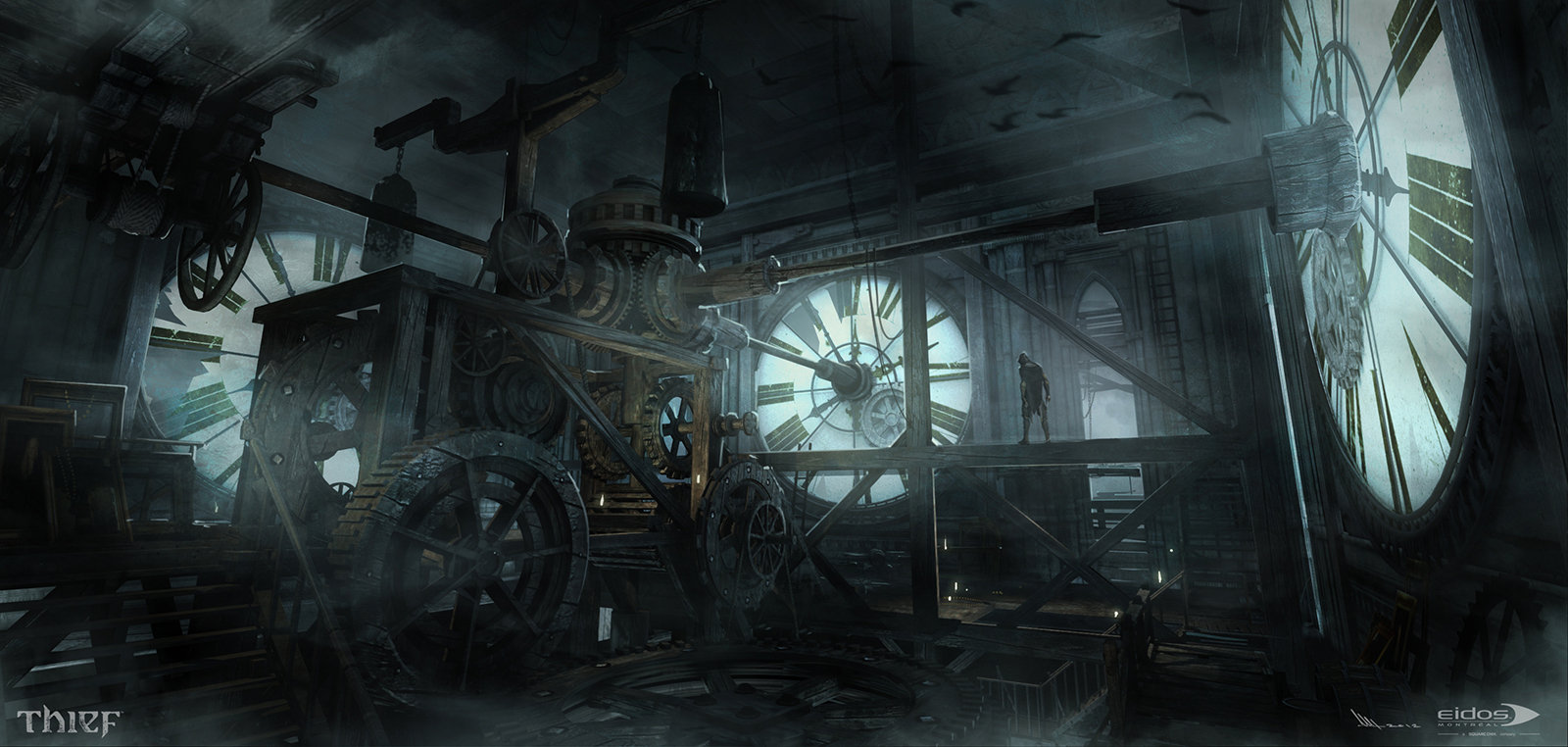There’s no hole inside you. And even if there were, you’ve filled it with excitement.
Right?
 |
| Mathieu Latour-Duhaime |
GLOG Class: Thief
A:The Heist*, Hidden Pockets, Fast Hands (Syndicate vs. Freelancer)^
B: Eye for Detail, Wall Crawling**, Unlabeled Package*
C: Tricky**, Scrounge**
D: Great Escape*, Opportunist*
* are sourced from Skerples’s Thief.
** are sourced from Type1Ninja’s Thief.
^ not core feature but discussed below the core features.
The Heist is the core of your being, the thrill of the hunt. Once per adventure or dungeon or campaign arc, you can gain 10% bonus XP for any one valuable item you personally stole. It has to pass through your hands, or you have to be the one masterminding the theft. Unguarded or abandoned treasure does not count (unless there are traps). For example, a gem worth 1,000gp would give you 100 extra XP. If the bonus XP would cause you to gain a level, you instead gain the exact amount needed to gain the level.
You’ve got Hidden Pockets on your person. You can mark a number of items equal to your Thief templates hidden. Unless your apparel, body, and armor is very thoroughly searched, these items won’t be found. The items hidden must be small enough to fit in your mouth.
Your Fast Hands help keep you alive. You gain an extra Fast inventory slot for each Thief template you have.
Your Eye for Detail helps you find things others overlook. You can spot additional details when searching or peeking or gain insight into the meaning of a detail.
1d6 extra details:
- Marks of recent activity involving item/area
- Item/area’s history
- Use of item/area
- Past users of item/area
- Traces of a substance (liquid, powder) on an item/area
- Item/area partway through an action
In town, you may spend any amount of money to buy an Unlabeled Package. When the package is unwrapped, you declare what it contains, as long as the contents comprise the appropriate number of Inventory Slots, don’t cost more than you originally paid, and are available in town. You can put multiple items inside a large Unlabeled Package, including smaller Unlabeled Packages. You can have no more than two Unlabeled Packages at a time.
You’re a Tricky combatant, as such, you roll with advantage when attempting Stunts.
Scrounge for useful things. Once per session, when you dig through trash or refuse, you can get an item rolled on the starting item table.
Once per day, you can automatically pull off a Great Escape from something that is restraining you and that you could plausibly escape from. This includes grapples, lynchings, and awkward social situations, but not sealed coffins or forcecages.
Be an Opportunist! Take advantage of situational bonuses to (surprise, elevation, etc) to deal an additional +1d6 damage on a nonmagical attack, provided you hit.
Syndicates versus Freelancers:
I didn’t include this in the core thief but I do think it’s an important part of thievery, and I’ll be using it in my own personal game.
Syndicated thieves enjoy a certain amount of protection, patronage, and equipment in exchange for 30-60% of their earnings per month. These rates can be negotiated, of course. Syndicates also act as contractors for thievery and similar endeavors, providing a somewhat steady source of employment and fences for objects. If a thief is caught or seen, a syndicate can bribe officers, eliminate witnesses, extract thieves, destroy records, or other such things. This aid depends on how much the thief pays the syndicate and how useful the syndicate perceives the thief to be. Some jobs are smokework, and if a thief gets caught on a smokework job, they’re expected to off themselves or be eliminated.
Freelancing thieves enjoy none of these benefits but keep 100% of their earnings. They can potentially build their own network or even their own syndicate but must be wary of competition from other syndicates or thieves. If a freelancer is attracting contracts away from syndicates, they may face recruitment offers, have an assassin sent after them, or have a bounty put on their head.
Basically, it’s a safety net versus faster leveling. The existence of syndicates also depends on the level of civilization in your setting, too.
Design Notes:
Well, I don’t believe in class triads. I do believe in the importance of sneaky stealy classes though. The feature that aggrieves me the most is Eye for Detail.
I struggled between giving thieves a Second Chance to see things or disarm traps or more information via Eye for Detail. I opted for more information but that means something else important: if the thief gets more information, they have an edge. This is right and good. Fighters get more attacks, wizards get more spells that summon killer ramen.
However, I don’t think thieves shouldn’t have a monopoly on information. All the clues necessary to solve the puzzle (including traps and maybe negotiations) need to be available to a party regardless of the number of thieves or quality of thieves the party has. I’m not going to lock information behind a successful roll if the party has been scouting/researching appropriately.
What is the utility of Eye for Detail, then, if all the information should be theoretically present to a party of veterans or druids?
Well, I see two options. The first is additional details that aren’t necessary to solve the puzzle/trap/social interaction but provide additional context. The second is an understanding of what the details mean. I’m sure there are other ways to use this, and I hope your thieves discover more ways.
This class will have some cross-pollination with the Assassin and possibly the Inquisitor. All three (Thief, Assassin, Inquisitor) do rely on a certain amount of subterfuge to accomplish their goals. Those goals will likely be very different, though.
This class will be a part of Who Fights Monsters, my in progress GLOG hack.

No comments:
Post a Comment